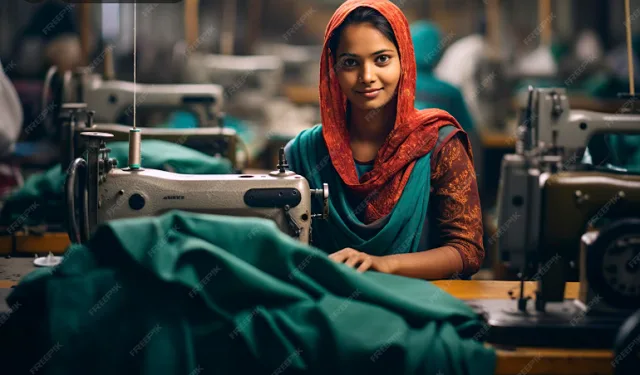Garment workers across Bangladesh are already enduring severe health and livelihood impacts as climate change pushes temperatures higher, a survey has found, with worsening conditions both inside factories and at home. According to a mid-2024 study of 1,000 garment workers in key industrial hubs including Rampura, Ashulia, Gazipur, Narayanganj, and Chattogram, 98% of respondents report noticeable changes in workplace temperature; 85% say they experience extreme heat; 78% have suffered climate-linked illnesses; and 41% describe frequent insect infestations in their homes.
The survey was presented at a dialogue titled “Just Transition and the Interplay of Climate Change, Labour Rights, and Gender in the Garment Industry,” jointly organized by Bangladesh Center for Workers Solidarity, the Centre for Labour and Development, and The Business Standard.
These findings illuminate the growing crisis of heat stress in the ready-made garment (RMG) sector, a cornerstone of Bangladesh’s export economy. Workers say elevated factory floor temperatures are becoming unbearable, with productivity slipping and health deteriorating. Many report symptoms such as fever, fatigue, respiratory problems, heat exhaustion, and more frequent episodes of illness across their households. Homes infested by insects are adding to the burden, implicating rising humidity and deteriorating sanitation, exacerbated by climate change-driven shifts in weather patterns.
Also Read: 5 Key Reasons Foreign Apparel Brands Choose Bangladesh for Sourcing
The survey also revealed that rising temperatures impact labour productivity: some workers reported sharp declines, others modest reductions. Female workers were disproportionately affected. Illness-related absenteeism is widespread, with a substantial share forced to take leave when climate-induced ailments strike. Experts say that the combination of heat, inadequate ventilation, and lack of protections in many factories is undermining both worker health and economic output.
These conditions are consistent with broader studies: earlier research shows that many factories lack sufficient cooling, proper ventilation, or risk allowances for heat-related illnesses. Millions of workers in Bangladesh’s RMG sector — a predominantly female workforce — are exposed to increasingly frequent heatwaves, and heat stress is already seen as costing significant losses in productivity.
Also Read: Bangladesh Advances on Global Circular Fashion Path with Netherlands Trade Mission
Despite this, observers note that interventions remain limited. Workers and rights groups urge that factories must upgrade cooling systems, improve ventilation, enforce rest breaks, provide clean drinking water, and ensure access to healthcare. They argue that brands, factory owners, and government regulators must step up investments in climate resilience in the garment sector, including infrastructure improvements and labour protections.
Bangladesh’s climate vulnerability is well documented: rising temperatures, increased humidity, more frequent extreme heat events and shifting vector-borne disease patterns place workers at dual risk at their workplaces and in their homes. Without concerted adaptation measures, health risks for garment workers threaten not only individual wellbeing but also the stability of Bangladesh’s garment export economy, which is critical for employment, foreign exchange earnings, and the livelihoods of millions.











